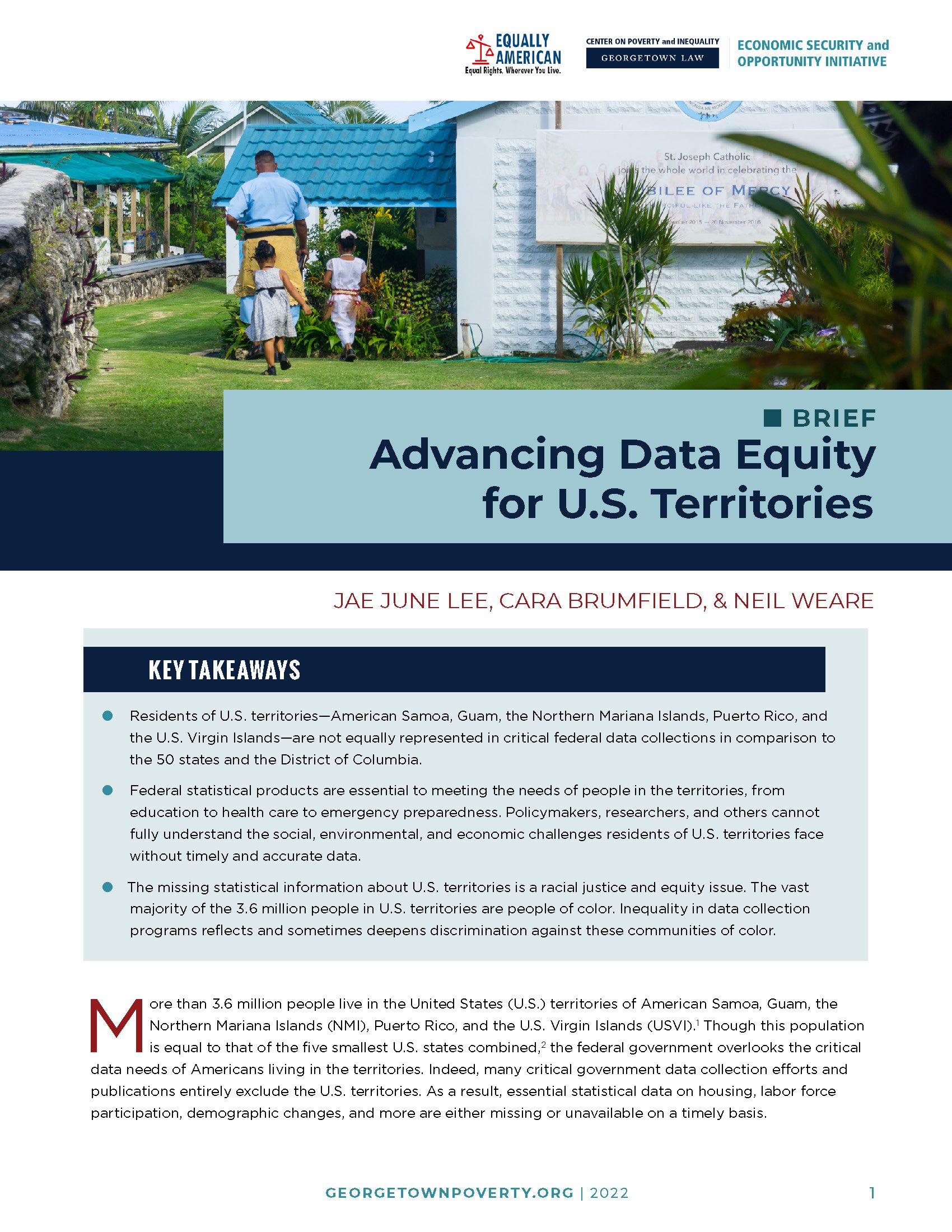The U.S. cannot fully understand itself as a nation and the needs of its people without timely, complete, and accurate statistics on all of its citizens and residents. However, millions of U.S. citizens and residents living in the U.S. territories are not included in many key government data collection efforts and publications. These data disparities undermine the ability of policymakers and researchers to understand national and local challenges, including the unique risks posed by the climate emergency and pervasive social and economic inequalities. This brief—published jointly with Equally American—analyzes the implications of inadequate data collection in the U.S. territories and recommends steps federal policymakers can take to improve the timeliness and accuracy of data and understand the social, environmental, and economic challenges residents of U.S. territories face.
Key Takeaways
- Residents of U.S. territories—American Samoa, Guam, the Northern Mariana Islands, Puerto Rico, and the U.S. Virgin Islands—are not equally represented in critical federal data collections in comparison to the 50 states and the District of Columbia.
- Federal statistical products are essential to meeting the needs of people in the territories, from education to health care to emergency preparedness. Policymakers, researchers, and others cannot fully understand the social, environmental, and economic challenges residents of U.S. territories face without timely and accurate data.
- The missing statistical information about U.S. territories is a racial justice and equity issue. The vast majority of the 3.6 million people in U.S. territories are people of color. Inequality in data collection programs reflects and sometimes deepens discrimination against these communities of color.

